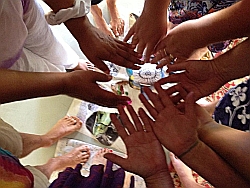What are social isolation and loneliness?
Loneliness is the feeling of being alone, regardless of the amount of social contact, and social isolation is a lack of social connections (Centers for Disease Control and Prevention). Interestingly, the two do not necessarily co-exist. A person may be socially isolated but not lonely, or socially connected but feel lonely. If untreated, they can degenerate into many identified diseases, including dementia, heart disease, stroke, depressive disorders, anxiety disorders and substance use disorders.
What are the statistics?
Social isolation and loneliness are widespread and have a serious impact on people’s physical and mental health, quality of life, and their longevity. According to the Centers for Disease Control and Prevention, studies have found that:
- social isolation significantly increased a person’s risk of premature death from all causes, a risk that may rival those of smoking, obesity, and physical inactivity;
- social isolation was associated with about a 50% percent increased risk of dementia;
- poor social relationships (characterised by social isolation or loneliness) was associated with a 29% increased risk of heart disease and a 32% increased risk of stroke;
- loneliness was associated with higher rates of depression, anxiety, and suicide; and
- loneliness among heart failure patients was associated with a nearly 4 times increased risk of death, 68% increased risk of hospitalization, and 57% increased risk of emergency department visits.
What is the issue?
Social isolation and loneliness are considered significant health and wellbeing issues in Australia, as they can be harmful to both mental and physical health (Australian Institute of Health and Welfare). High-quality social connections are essential to our mental and physical health and our well-being, and the effect of social isolation and loneliness on mortality is comparable to that of other well-established risk factors such as smoking, obesity, and physical inactivity (World Health Organisation). The effects of COVID-19 has exacerbated these issues, so much so that they are increasingly being recognised as a priority public health problem.
What can I do to control or prevent this issue?
It is important to take care of yourself. Exercising, eating healthy, getting enough sleep, and pursuing activities you enjoy to help manage stress and stay as mentally and physically healthy as possible. Staying active and connecting with others is crucial. People who engage in meaningful, productive activities they enjoy with others feel a sense of purpose and tend to live longer (National Institute on Aging). In particular:
- find an activity that you enjoy or take a class to learn something new;
- stay physically active and include group exercise;
- join a support group; and
- utilise community-based support and services (including local non-profits).
This is where we can help You!

